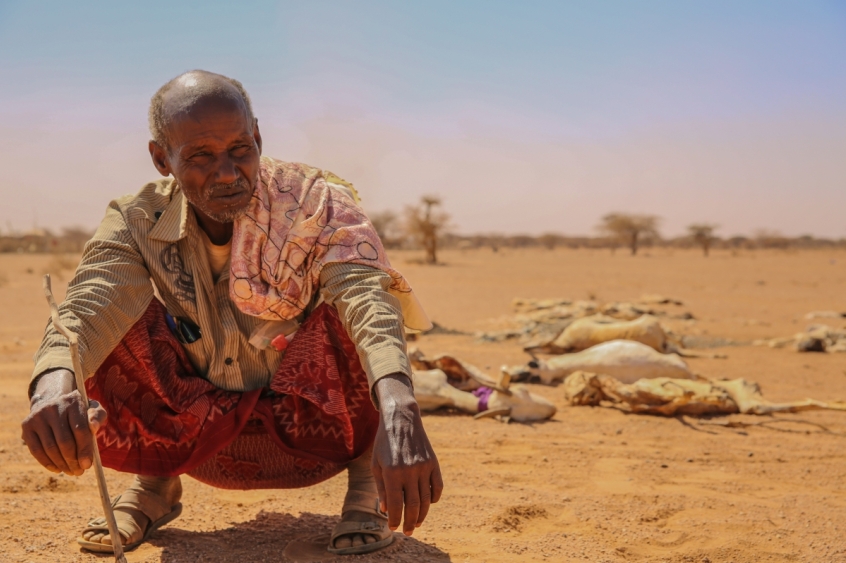The Disasters Emergency Committee (DEC), which is co-ordinating UK charities' response to the East Africa crisis, has warned of a surge in the transmission of waterborne diseases across the region.
Prolonged drought, conflict and food and water shortages have left 16 million people on the brink of starvation and resulted in a spike in the number of cases of Acute Watery Diarrhoea (AWD) – a key symptom of cholera.

In Somalia alone, the UN recorded almost 12,700 cases of AWD and cholera in the first three months of 2017.
In South Sudan, the World Health Organisation (WHO) has recorded 5,640 cases. One in five are children aged under five.
In the district of Terekeka, one in three people with cholera are dying.
Women, children and older people are most affected. Those already suffering from malnutrition are particularly susceptible to transmission and are more likely to die.
Cholera is simple to treat but patients must receive medical assistance within the first few hours. Aid workers are struggling to meet the growing demand.
The DEC says without immediate interventions of lifesaving aid, water and sanitation, the transmission of waterborne diseases will continue to escalate.
Simon Nyabwengi, World Vision's national director for Somalia, said: 'There is an urgent need to scale up support for health interventions in the South-west State, especially in districts that have been hard hit by outbreaks of Acute Watery Diarrhoea. As transmission rates rise we are struggling to meet the need of the people here – we simply need more funding.'
DEC chief executive Saleh Saeed said: 'DEC members are working around the clock to get clean water to millions of people in desperate need. Here in the UK people up and down the country have shown huge generosity, but the humanitarian needs across East Africa are on such a large scale, we all need to do more. We need your help more than ever to keep supplies flowing and prevent the spread of waterborne diseases. Every donation helps – £60 could provide clean drinking water for two families for a month.'
The DEC has already raised £26 million for the East Africa crisis. The funding will be distributed across all 13 member agencies.













